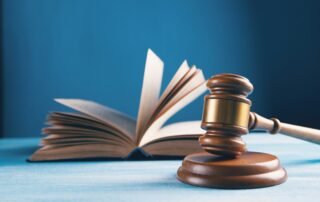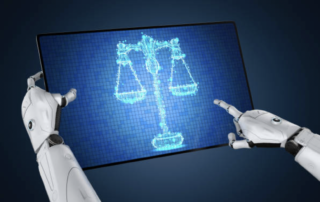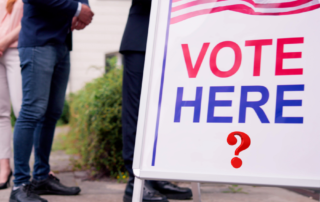Emerging Litigation Podcast
Authentic Business Development for Litigators: Stop Chasing Cases and Start Building Clients with John Reed on the Emerging Litigation Podcast
What if waiting for lawsuits is the worst growth strategy a litigator can have? In this episode of the Emerging Litigation Podcast, host Tom Hagy speaks with John Reed, founder of Rain BDM and host of Sticky Lawyers, about how litigators can build authentic, lasting client relationships instead of chasing the next case. John shares practical insights on defining your professional brand, using emotional intelligence in business development, and adapting your natural style—especially for introverts or those navigating remote mentorship. Whether you’re a new associate or a seasoned partner, this episode offers a roadmap for making your practice more resilient, visible, and genuinely client-centered.
New and Improved Antitrust Whistleblowing Incentives with Julie Bracker and Dan Mogin on the Emerging Litigation Podcast
Can whistleblowers reshape antitrust enforcement the way they’ve exposed fraud in other industries? In this episode of the Emerging Litigation Podcast, host Tom Hagy talks with Julie Keeton Bracker of Bracker & Marcus and Dan Mogin of Mogin Law about the Department of Justice’s new push to encourage insider reporting in antitrust cases. They explore the history of qui tam actions, the power of the False Claims Act, and how individuals could soon play a bigger role in uncovering price-fixing, bid-rigging, and other anti-competitive schemes.
Resolving Business Disputes Without Burning Bridges Featuring Judge Alan Fine on the Emerging Litigation Podcast
In this episode of the Emerging Litigation Podcast, retired Judge Alan Fine of Private Resolutions explores how businesses can resolve disputes without destroying valuable relationships. Drawing on decades of experience on the bench and in commercial litigation, Judge Fine explains the pros and cons of mediation, arbitration, and “private judging,” which allows parties to choose their own judge and resolve matters quickly and confidentially. He shares how aligning your dispute resolution strategy with business objectives—rather than emotions—can preserve partnerships, save time, and achieve fair results.
A Shameless Plug for Our Content Services
Your content marketing is everything you’ve ever dreamed of. Right?

Critical Legal Content was founded by Tom Hagy, former Editor & Publisher of Mealey’s Litigation Reports and VP at LexisNexis, founder of HB, current litigation podcaster and editor-in-chief. CLC’s mission is to help smaller firms and service providers not only create content — blogs, articles, papers, webinars, podcasts (like the stuff on this site) — but also to get it out there. How? Via social media, this website, your website, and potential via our podcast and journal which we publish in collaboration with vLex Fastcase and Law Street Media. The goal is to attract readers and dizzy them with your brilliance.
*Inspired by actual events.
Create content like a real legal publisher.
Emerging Litigation Journal
Agentic AI on Trial: You Be The Judge Part 1 – Medical Diagnostics | Featuring An AI Expert, a Google Cloud Exec, and a Florida Circuit Judge
When autonomous AI systems make life-and-death decisions, who is responsible when something goes wrong? In Part 1 of the Agentic AI on Trial series, Galina Datskovsky, PhD, Marina Kaganovich, and Hon. Lisa Walsh examine a hypothetical agentic AI mammography triage system designed to operate with minimal human oversight. The panel explores accountability across developers, hospitals, clinicians, and data providers—and whether new standards of care are emerging for machine decision-making. A must-listen for health tech, compliance, and healthcare operations professionals navigating the legal and operational risks of autonomous AI.
Voting Rights Under Threat: A Legal Challenge | Organizations Say Expansion of Citizen Database Violates Privacy and Voting Rights
The rapid advancement of AI technology continues to challenge courts, companies, and consumers. Read about recent developments that in-house counsel and litigators should be watching.
HB Artificial Intelligence Update Monday, Dec. 15, 2025 | Wrongful Death, Discrimination, Intellectual Property
The rapid advancement of AI technology continues to challenge courts, companies, and consumers. Read about recent developments that in-house counsel and litigators should be watching.
HB Webinars on CeriFi LegalEdge
Forever Chemicals: Insurance Recoveries for PFAS Liabilities
Take this CLE webinar and gain a better understanding of the evolving legal, regulatory, and insurance landscape surrounding PFAS ("forever chemicals") and their growing impact on businesses and insurers. We feature experienced insurance recovery attorneys Bob Horkovich and Cameron Argetsinger and environmental experts Arthur J. Clarke and Walker Prentke from J.S. Held. Take it now or when you're ready. It's on demand!
Post-Hurricane Coverage and Claims Adjustment Issues
Take this CLE webinar and gain a better understanding of ey insurance coverage issues arising from Hurricanes Helene and Milton, including business interruption claims, deductibles, flood sublimits, and strategies to address delays in the claims adjustment process. We feature experienced insurance recovery attorneys Dennis Artese, Marshall Gilinsky, Joshua Gold, and Grant Brown of Anderson Kill, P.C. Take it now or when you're ready. It's on demand!
Key Developments in Antitrust Class Action Litigation: Recent Developments, Key Class Action Trends, Significant Rulings, and Major Settlements Shaping the Future of Antitrust
Gain an understanding of the latest developments in antitrust class action litigation, including evolving class certification standards, key rulings on multi-district litigation, and major settlements shaping the field on a CLE webinar featuring experienced antitrust attorneys Gerald L. Maatman, Jr., Jennifer A. Riley, and Sean P. McConnell. Explore significant court decisions on pricing algorithms, the right-to-repair movement, and baseball’s antitrust exemption while staying informed on critical trends in competition law. Register now!



























